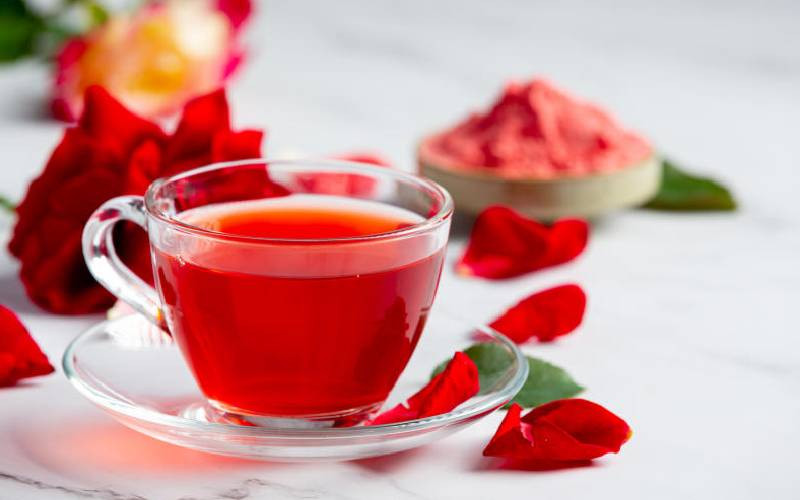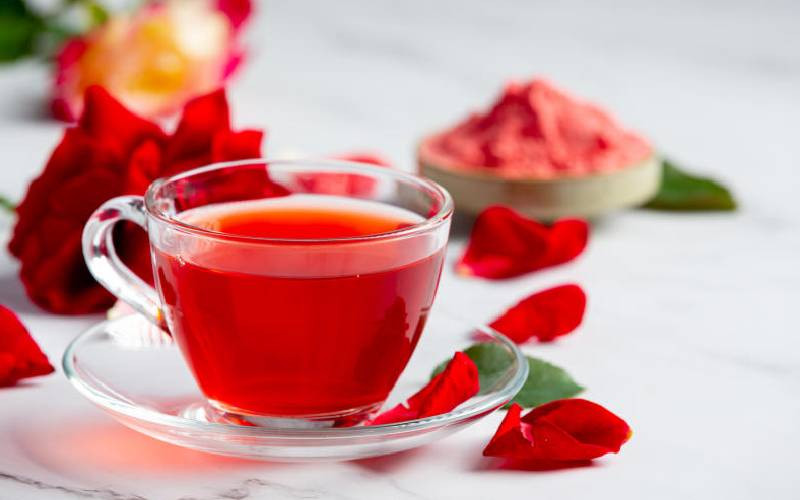
Tea has come a long way from the simple leaf steeped in boiling water. From traditional caffeinated black tea, we now enjoy herbal and fruit infusions made from petals, bark, roots, herbs, and dried fruits.
Flavours such as hibiscus, chamomile, citrus peel, vanilla, and ginger offer not only appealing aromas but also valuable health benefits. These teas are more than just enjoyable beverages — they are packed with antioxidants and essential nutrients. A cup can be soothing after a meal, refreshing in the morning, or calming before bed.
In Kenya, fruit teas are becoming increasingly popular as health-conscious consumers look beyond caffeine. According to Kenya’s Brewing Trends report, domestic tea consumption reached approximately 0.72 kilograms per person in 2024, more than double the global average of 0.30 kilograms.
While black tea still dominates the market, more Kenyans are experimenting with herbal and fruit blends, showing that these alternatives are finding a natural place within the country’s strong tea culture.
However, experts advise moderation. For adults, three cups a day is sufficient, and some blends are not recommended for children or pregnant women due to the potency of certain active compounds. Rotating flavours also helps to avoid overconsumption of any one ingredient.
These teas are more than just flavourful, they are wellness brews. Fruit teas contain antioxidants, such as polyphenols, catechins, and anthocyanins. Notably, research on Kenyan purple tea has shown it contains even higher antioxidant levels than many green or black teas. The World Health Organisation (WHO) notes that antioxidants help reduce the risk of chronic diseases by protecting cells from damage and reducing inflammation.
For best results, choose natural, unsweetened blends with real dried fruits and herbs. Avoid added sugars and artificial flavours. Steep for three to five minutes, and avoid overbrewing to prevent bitterness and preserve benefits..
Whether enjoyed warm for comfort or chilled for refreshment, fruit teas reflect Kenya’s evolving tea culture—a shift from tea as just a daily drink to a health-conscious lifestyle choice.
Here are some of the health benefits you can expect when you add fruit teas to your routine:
Boosts metabolism. Many fruit teas are rich in catechins and polyphenols, which help the body burn calories. Suppresses appetite. The natural sweetness and fruity aromas help curb sugar cravings and reduce desire for high calorie snacks. Hydration. Fruit teas are a tasty, low calorie alternative to sugary drinks. Staying well hydrated helps skin elasticity, supports digestion and maintains energy. Rich in antioxidants. Compounds, such as anthocyanins, catechins and polyphenols help combat free radicals, slow skin ageing and reduce cellular damage. Supports collagen. Fruit teas rich in vitamin C, such as orange, kiwi and lemon help the body produce collagen, which keeps skin firmer and smoother. Anti-inflammatory effects. Many fruit teas reduce inflammation, which may ease joint stiffness or discomfort. Diuretic and urinary health. Certain fruit teas promote gentle cleansing of the urinary tract, helping flush toxins. Fights fatigue and viruses. Ingredients in fruit teas can help energise and support immune defences against minor infections or tiredness. The Standard Group Plc is a multi-media organization with investments in media
platforms spanning newspaper print
operations, television, radio broadcasting, digital and online services. The
Standard Group is recognized as a
leading multi-media house in Kenya with a key influence in matters of national
and international interest.
The Standard Group Plc is a multi-media organization with investments in media
platforms spanning newspaper print
operations, television, radio broadcasting, digital and online services. The
Standard Group is recognized as a
leading multi-media house in Kenya with a key influence in matters of national
and international interest.











